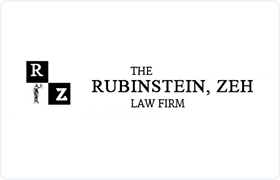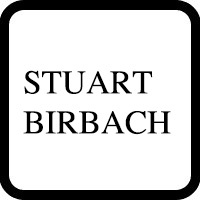 Howard Beach Wills & Probate Lawyers, New York
Howard Beach Wills & Probate Lawyers, New York
Sponsored Law Firm
-
 x
x

Click For More Info:
-
The Law Firm of Rubinstein, Zeh and Associates
445 Broadhollow Rd. Suite CL-10 Melville, NY 11747» view mapEstate Law Full Service Law Firm
The Law Firm of Rubinstein, Zeh and Associates has built its practice primarily on word-of-mouth among our clients and the trusted referrals from our colleagues.
800-960-1529
Includes: Estate Administration, Living Wills, Wills
Sponsored Lawyers
1-10 of 11 matches
Criminal, Wills & Probate
Introducing Stuart Birbach: Your Trusted Advocate for Criminal Matters in New York When it comes to navigating the complex and often daunting world of criminal law, one name stands out as a beacon of hope and expertise: Stuart Birbach. With an illustrious career spanning years of dedicated service, Mr. Birbach has established himself as a highly respected and sought-after lawyer in New York. With a deep understanding of the intricacies of criminal matters and an unwavering commitment to justice, he has consistently delivered exceptional results for his clients.
(more)Estate, Wills & Probate, Trusts, Elder Law
Attorney Irina Yadgarova focuses her practice on Trusts & Estates, Probate & Administration, Elder Law, and Real Estate. She is licensed to practice law in the courts of the State of New York, the State New Jersey, and the U.S. District Courts in the Southern and Eastern Districts of New York. Ms. Yadgarova's practice encompasses all aspects of Estate Planning, Elder Law and Real Estate. She provides legal services to residents of New York and New Jersey and handles matters pertaining to Wills, Trusts & Estates and Long Term Care Planning. Prior to establishing her own practice, Ms. Yadgarova worked as a wealth management attorney at UBS Wealth Management. While at UBS, she counseled the business with regard to their high net worth clientele. Ms. Yadgarova obtained her Bachelor of Arts degree in Economics, summa cum laude, from Yeshiva University and her Juris Doctor degree from Benjamin N. Cardozo School of Law. While in law school, she acted as president of the Russian Speaking Law Students Alliance and wrote for the Cardozo Law Journal of Dispute Resolution. Ms. Yadgarova is a member of the New York State Bar Association and their Trusts & Estates Law section, the Queens County Bar Association, and the Russian Speaking Business Alliance Network. Ms. Yadgarova frequently lectures on Estate Planning and Advance Directives. Her articles on Estate Planning and Elder Law are often featured in community newspapers. She is fluent in Russian and resides in Queens, New York with her husband and three children.
(more)


 Christine Rubinstein Melville, NY
Christine Rubinstein Melville, NY AboutThe Law Firm of Rubinstein, Zeh and Associates
AboutThe Law Firm of Rubinstein, Zeh and Associates Practice AreasExpertise
Practice AreasExpertise


